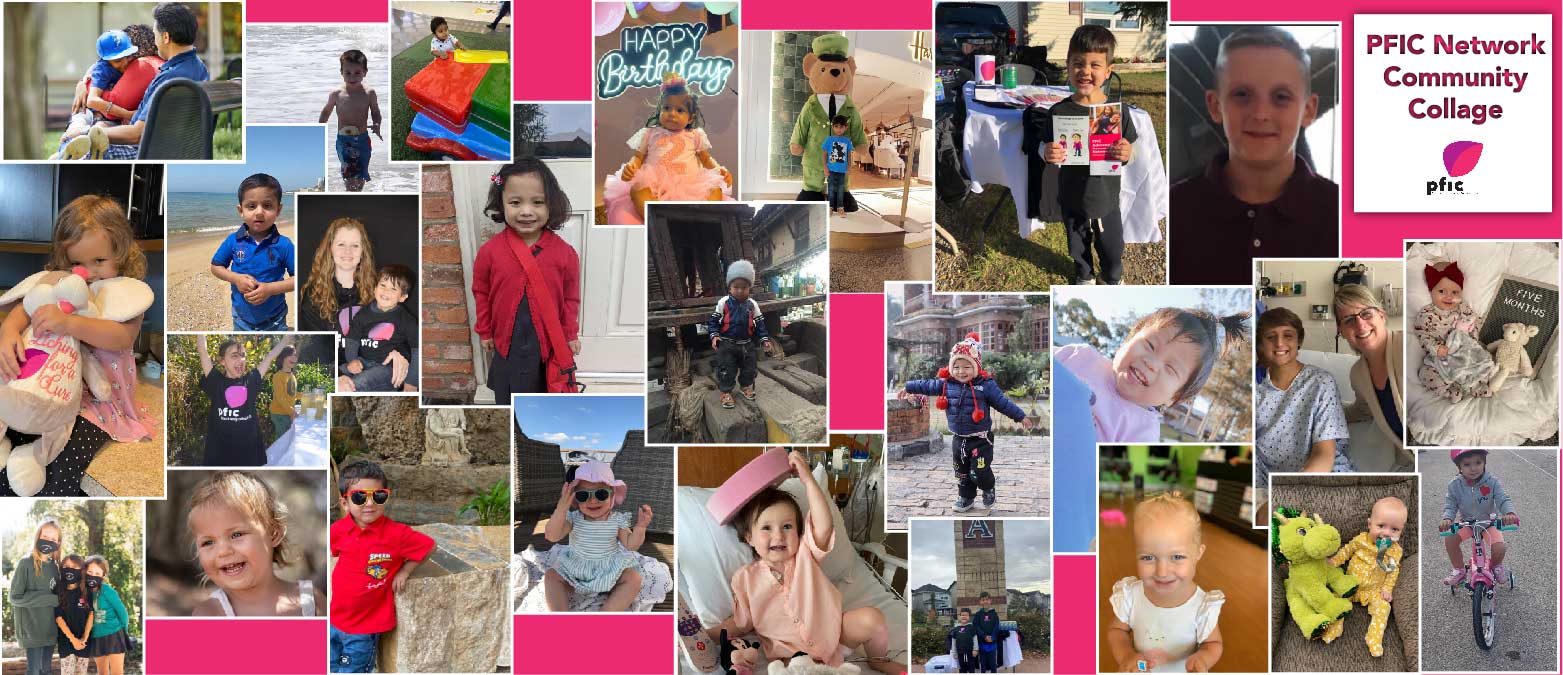Deciding In The Dark
By Lisa Jensen

Navigating a rare disease can feel like traversing a dark and unfamiliar room. There are fragile lamps and sharp-edged tables to navigate around—all of them obscured in darkness. In the not-so-distant past, the room now labeled “PFIC” was pitch black. Every step taken by a patient, doctor, or caregiver, was a blind step, fraught with uncertainty. The room was so dark that its occupants never saw one another. They bumped hard against the same tables, tipped over the same lamps, felt swallowed in the same darkness, and all the while imagined they were the only ones in the room. The PFIC room still has pockets of total blackness. Even its brightest patches are dim. But some light shines in. Research and treatments are progressing. This community exists and continues to grow. You don’t have to navigate the darkness alone anymore.
At some point in your journey with PFIC, you will have to take a step without seeing clearly what is in front of you. Odds are, you’ve already done this—perhaps many times. You’ve turned your head to the left and right, taking in all available light. Maybe you’ve called out to others, asking what they know about the territory you’re in, but even when encouragement or information are called back to you, moving your feet forward can be frightening. At some point in your journey with PFIC, you will have to take a step without seeing clearly what is in front of you. Odds are, you’ve already done this—perhaps many times. You’ve turned your head to the left and right, taking in all available light. Maybe you’ve called out to others, asking what they know about the territory you’re in, but even when encouragement or information are called back to you, moving your feet forward can be frightening.
I wish I could write a blog post entitled “How to Ensure That Your Child Never Suffers” or “How to Be Certain of the Outcome of Every Medical Decision Before You Make It,” but no room on this planet is bright enough to support titles like that. PFIC parents and caregivers have to make hard choices based on the combination of limited data and their unlimited love for the patient. This isn’t fair, and it isn’t fun. It just is, which raises this question: how can you support yourself (whether you are a patient or a caregiver) through the scary but sometimes necessary task of deciding in the dark? Here are a few suggestions:
Forgive yourself first.
Forgive yourself for bumping into the sharp corner of that malicious table before it actually happens. When you find yourself in a position where you must make a choice—the choice to do nothing or the choice to act, the choice to try this treatment or the choice to try that one—work with whatever light is available. Gather information, and then gather yourself by whatever means you can. Meditate or pray or take a walk in nature.

Spend some time crying or laughing or lifting weights or doing whatever it is that connects you with the stillest, calmest, most loving part of yourself. Let the light of that part of you shine together with the light of whatever information you’ve gathered. Then make your decision. As you do so, also decide that if this decision bumps you or someone you love up against more suffering, you will forgive yourself. You are simply doing your best in a dark and cluttered space that you didn’t ask to be in.

Notice what’s keeping you stuck.
Sometimes the best course of action is no action. Other times, no action may not be the best course, but it feels the least terrifying, so we default to it anyway. This is called decision paralysis. It happens when we are so scared of making the wrong choice that we freeze and do nothing. Decision paralysis makes all the sense in the world when you are in this dark, cluttered, largely uncharted room called PFIC.
If fear is impairing your ability to gather light, gather yourself, and move forward in the way that seems best (darkness and uncertainty notwithstanding), know that you aren’t alone in that dark space either. Notice what’s happening. Notice that it’s normal and understandable. And notice, too, where you might turn for support. Consider discussing your challenges around medical decision making with your (or your child’s) doctor, with a therapist, with other PFIC families, or with a trusted friend.
Notice where your power is.
It’s easy to list the ways in which PFIC limits your life. It’s easy to notice the ways in which it constrains your decisions. None of the hard realities of living with a rare disease need to be sugar-coated or denied. Let this other truth sit alongside all of that, though: you are not powerless. You have skills, strengths, experience, information, and resources to draw on as you navigate this room. You have the power to lovingly support your child—or yourself—through each dark step. You have the power to ask for and accept support from others. You have the power to offer support, too.
This is one of the strengths of the PFIC community; the willingness of parents and patients to share their own stories and experiences has already brought light into this space. This generous sharing—whether through participation in research, through engagement in online communities, or through other means—has changed the landscape of what it’s like to live with PFIC. Some sharp edges are easier to avoid now. Some spaces are illuminated. No one needs to be alone in the room anymore. You have the power to be part of this continuing illumination, connection, and progress. The fact that you’re here reading this suggests that you already are!

Some moments still feel very dark, of course. If you find yourself freezing in response to uncertainty, know that this is normal. Offer yourself compassion. It’s natural to struggle with decisions—especially decisions made in the dark. As a PFIC parent, you are a decision maker for your child. This may feel like a frightening responsibility at times. Remember, though, that you are offering your child something more than just medical decisions. You are also offering them a model for how to make hard choices and how to live lovingly, gracefully, and self-compassionately with the consequences.
If you need support, then we urge you to reach out to your doctor or a therapist, connect with other patients and caregivers in the BRIC/PFIC Facebook group, check out suggestions for stress management in our Rare & Resilient webinar, or reach out to us as mentalhealthsupport@pfic.org.
